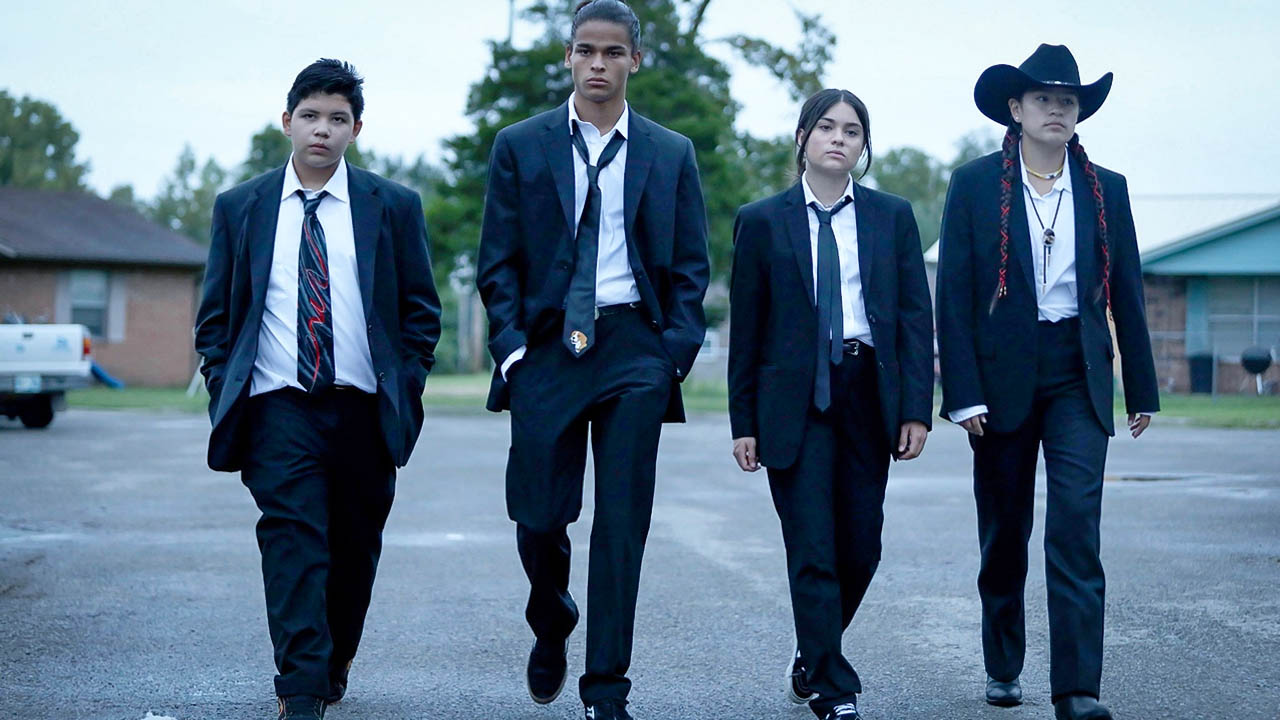
- Details
- By Chez Oxendine
The show, which follows a group of teens on an Oklahoma reservation, was one of 42 nominees this year through a unanimous vote by a 17-member board of jurors. Reservation Dogs survived quite the winnowing, as the original pool of entrants stood at 1,200, per a Peabody Awards press release.
The 42 entries run the gamut from television to podcasts across categories like Entertainment, Arts, Children’s/Youth, and Interactive and Immersive. They join a slate of documentary and news coverage nominees announced earlier in April, bringing the total pool to 69. The winners of the Peabody Awards in each category will be announced on May 9, then celebrated on June 11 — the first in-person ceremony since 2019.
The ceremony will also honor the winner of the first annual Visionary Award, honoring Sundance Film Festival Senior Programmer and Chief Curator of New Frontier Shari Frilot.
“From hilarious and heartfelt comedies to interactive and immersive stories that leverage technology to create gripping narratives, Peabody is dedicated to recognizing compelling stories across the media landscape,” Jeffrey Jones, executive director of Peabody, said in a statement. “After another groundbreaking year of storytelling, we are proud to honor some of the many compelling pieces of media that led us forward - a reflection of the effort and talent of their creators, the nominees entertained, informed, and inspired, all demonstrating the immense power of a great story.”
The honor continues Reservation Dogs’ forward momentum as the vanguard in an industry-wide push for more Native representation in media. (Notably, the program even earned the favor of Oklahoma Gov. Kevin Stitt, who has a notoriously poor relationship with many of the state’s tribes.) The show has seen breakout success on FX and played a role in prompting other streaming services to pick up Native media, per prior Tribal Business News reporting.
In the show’s wake, other streaming services have leaped at the chance to produce Native stories, such as AMC’s Navajo-centered detective show Dark Waters, Peacock’s comedy-drama Mohawk Girls, and Netflix’s Rez Ball (also headed by Reservation Dogs’ showrunner Sterlin Harjo.)
“All of a sudden, they need more content, and they need a lot of it,” Harjo told Tribal Business News in a previous story. “People don’t want the same old stories…[This] is going to splinter off and create so many other opportunities. When you do your work like that, and you treat it more as a community, people watch that, and that’s how they learn.”
More Stories Like This
Zuni Youth Enrichment Project Takes Top Emerging Artist Apprentices to Phoenix for Artistic Exploration and Cultural ImmersionFrom Dishwasher to Award-Winning Chef: Laguna Pueblo's Josh Aragon Serves Up Albuquerque's Best Green Chile Stew
Rob Reiner's Final Work as Producer Appears to Address MMIP Crisis
Vision Maker Media Honors MacDonald Siblings With 2025 Frank Blythe Award
First Tribally Owned Gallery in Tulsa Debuts ‘Mvskokvlke: Road of Strength’
Help us defend tribal sovereignty.
At Native News Online, our mission is rooted in telling the stories that strengthen sovereignty and uplift Indigenous voices — not just at year’s end, but every single day.
Because of your generosity last year, we were able to keep our reporters on the ground in tribal communities, at national gatherings and in the halls of Congress — covering the issues that matter most to Indian Country: sovereignty, culture, education, health and economic opportunity.
That support sustained us through a tough year in 2025. Now, as we look to the year ahead, we need your help right now to ensure warrior journalism remains strong — reporting that defends tribal sovereignty, amplifies Native truth, and holds power accountable.
 The stakes couldn't be higher. Your support keeps Native voices heard, Native stories told and Native sovereignty defended.
The stakes couldn't be higher. Your support keeps Native voices heard, Native stories told and Native sovereignty defended.
Stand with Warrior Journalism today.
Levi Rickert (Potawatomi), Editor & Publisher


